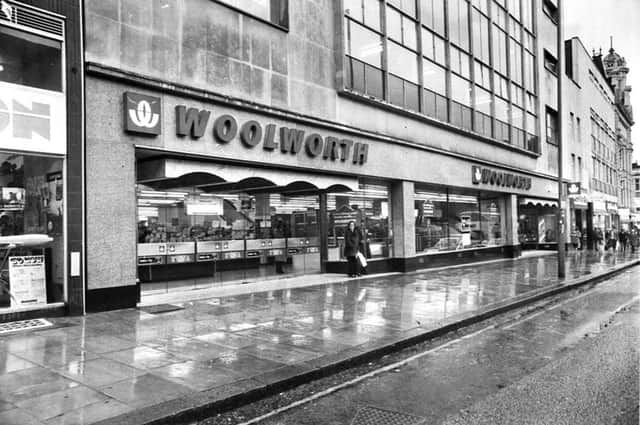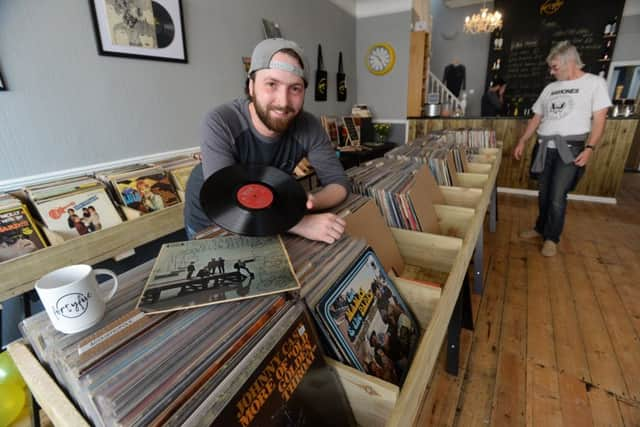Ten years on, the wonder of Woolworth is that its shops are still in business...


So the disappearance of its 807 branches exactly 10 years ago, amid global financial meltdown, was a watershed moment – a harbinger of the demise of traditional shops in a new landscape of online retailing.
But new data suggests that nearly all the Woolworths stores that began their closing down sales in December 2008 are alive and well, under new management.
Advertisement
Hide AdAdvertisement
Hide AdIt has also emerged that the Woolworth tradition of pick ’n’ mix is making its way back to town centres – not with bags of sweets but with combinations of selling and entertainment pitched at a new generation of shopper.


There were 43 Woolworth stores in Yorkshire at the time of the chain’s collapse, and all were taken on by new retailers, although three are currently once more to let, retail consultant Graham Soult told The Yorkshire Post.
Nationally, the budget retailer Poundland became the biggest occupant of the old shops, taking on 64 at the time and around 80 more since. Iceland and the discount store B&M were among the other big takers.
Other than seven that have become gyms, three in the South of England that are now libraries, and four that were never reoccupied, most of the 807 branches are still retailing.
Advertisement
Hide AdAdvertisement
Hide Ad“But the difference is that the new shops all have a really strong proposition,” Mr Soult said.
“Woolworth got lost somewhere in the middle. It was in the same place that BHS ended up – it was neither really good value nor really good quality.
“That’s the lesson from that experience – the retailers who come unstuck are the ones who aren’t the best at any one thing.”
In the decade to come, the high street may move still further away from the 20th century style of retailing – with shops that stand out from the crowd the ones most likely to survive, a Yorkshire academic said.
Advertisement
Hide AdAdvertisement
Hide Ad“Selfridge’s is continuing to thrive and make money because they have found a way to offer something more than just a product to buy,” said Alessia Grassi, a lecturer in marketing at Huddersfield University.
Financial problems at House of Fraser, which was bought out of administration in the summer by Sports Direct, and at Debenhams, which has posted the biggest losses in its history, were symptoms of having failed to innovate,” she said.
“Their stores are the same everywhere – they’re selling the same stuff. Consumers today are looking for more than simply buying a product when they enter a space,” Ms Grassi said.
“There should be a reason to go into a branch in Leeds instead of the one in Sheffield – brands should be doing things differently in each place.”
Advertisement
Hide AdAdvertisement
Hide AdShe said the emerging trend was to mix retail and leisure in the same store, with online names carving a presence on the high street.
“You can have corners of a store offering Instagram booths and other social media promotions. On Black Friday, Amazon opened a pop-up store to provide a physical experience of its best rated products.
“So we have digital going physical and physical stores with a digital experience inside.
“It’s about mixing things that are not really connected. The old lines are all blurred now.”
Advertisement
Hide AdAdvertisement
Hide AdThe Forty-Five Vinyl Cafe, on Micklegate in the centre of York, is one of a new breed of high street businesses – part record shop, part eatery.
Its co-owner, Dom White, said: “Concentrating on one thing in the current climate is not a good idea. It’s all about getting people through the door and entertaining them.”
In the US, the upmarket department store Nordstrom has begun to open branches that carry no stock at all – just a nail salon, a bar, seamstress and fitting rooms.
“They are providing an experience,” said Alessia Grassi, of Huddersfield University. “It’s the type of very different shop we will see more of in the future – somewhere people can gather together.”